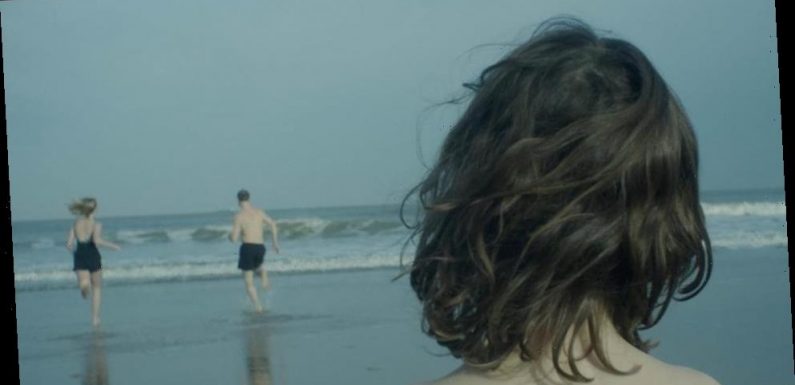
Suffocatingly indebted to the films of Michael Haneke in its chilly dissection of (upper) middle-class malaise, Ronny Trocker’s “Human Factors” is the kind of puzzle-box thriller that you’d want to re-watch immediately — if only it left you with any desire to ever watch it again. At once both more obvious and more obtuse than “Caché,” the Haneke film with which it seems to have the most in common, Trocker’s second feature (following 2016’s “The Eremites”) never quite manages to make good on its gamesmanship and only allows itself to have any fun once it’s sure that nobody else is.
The film’s X-ray insight into brittle bourgeoise fear is still lucid enough to get under your skin, especially when Trocker seizes on the feeling that we’ve seen this before and begins to weaponize it against us. Klemens Hufnagl’s floating camera wends its way through an empty Belgian vacation home somewhere near the German border; the place is eerie and expectant, acclimating us to a film preoccupied with blind spots in domestic bliss. A picture-perfect family without a surname arrives halfway through the shot and spills inside like a white-water rapid, sure of where they’re going but powerless to change direction.
Preteen son Max (Wanja Valentin Kube) rushes to the couch with pet rat Zorro, followed by his pubescent sister Emma (Jule Hermann) with her shitty music and secret weekend plans. Parents bring up the rear, each preoccupied with different thoughts. Nina (Sabine Timoteo, so memorable in “The Wonders”) seems a bit stiff, even though the property has belonged to her family for generations. Her husband Jan (“Dark” actor Mark Waschke) is focused on findingone of his cell phones. Everyone comments on the house’s musty stink, and agrees they should air it out.
Later, Jan volunteers to buy groceries — the better to make a business call away from the ears of his wife. She’s mad that he gets all the credit for the marketing agency they run together, and madder still that he made the greedy and unilateral decision to accept a controversial political campaign as their latest client. As Jan finishes his furtive conversation on the far side of the garden wall, he hears Nina scream from the second-floor bedroom. She swears that she found strange men in the house, and was so startled by the sight that she ran face-first into a door frame and bloodied her nose. Nobody else saw a thing, and the thieves — if they were thieves, or if they were anything at all — haven’t stolen anything. But the idea of the intrusion is enough to rob Jan and Nina of the most valuable thing they share: the sense of absolute safety that snow-globes their family from the world and its problems. Also, Zorro is missing.

“Human Factors”
Whatever fun there is in “Human Factors” comes from trying to untangle Trocker’s sailor’s knot of broken timelines and shifting perspectives, but it’s not a spoiler to say that some of the film takes place in the days leading up to the weekend getaway. The clever decision to straddle the story across countries and languages accentuates how these privileged characters are as free to move around Europe as they are moribund within their own family.
One crucial scene works especially hard to underscore how Jan and Nina have hidden themselves inside a fortress of money and one-way communication, as their swank office space is attacked by unseen assailants who pelt the opaque walls with globs of green paint. It’s the strongest of a small handful of jolts, made all the more powerful by how little it takes to make these people go from calm to DEFCON 1. Alarms go off, the power is cut and Jan screams, “I will not be slaughtered like this!” at no one in particular. Anyone would be rattled, but for people who’ve dedicated their lives to preserving an atmosphere of oxygenated calm, any turbulence can feel like total engine failure and stability impossible to regain.
“Human Factors” occasionally hones in on more personal aspects of its characters, but the film is too icy for those specifics to be more than easy symptoms of a broader societal plague. Trocker is magnetized to the idea that image has supplanted communication; these professional advertisers can’t reach each other or their children because they don’t have a focus group at home to shape their messages. The film’s overlapping perspectives express that disconnect better than interpersonal drama: If these characters could talk things out, they wouldn’t be stuck in this movie in the first place.
Once you’re hip to the story’s strange and circular rhythms, each new angle of the home invasion belabors the point. It isn’t long before “Human Factors” feels like watching someone on “Wheel of Fortune” spin for extra prize money after everyone at home has solved the puzzle. Trocker pushes back against the ambiguity intrinsic to severe Euro-thrillers like this one (even as he leans into tropes, like the blank young boy whose drone becomes a perfect totem of detachment) and doesn’t leave a single letter unturned. Even Zorro gets a chance to say his piece.
Instead of a “Rashomon” effect meant to muddy a single truth, “Human Factor” illustrates four co-equal truths too afraid of each other to compare notes. A pivotal dynamic between Emma and her parents doesn’t announce itself until the final minutes, which is typical of a movie that never stops looking for new ways to articulate what its characters refuse to say, only to settle for a punchline of an ending that feels like it’s telling a joke to itself.
Grade: C
“Human Factors” premiered in the World Cinema Dramatic Competition at the 2021 Sundance Film Festival. It is currently seeking U.S. distribution.
Source: Read Full Article
